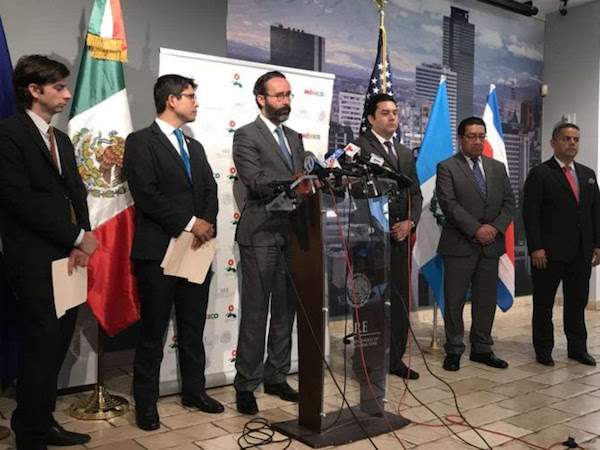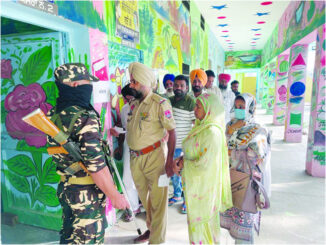
NEW YORK(TIP): On Tuesday, the New York-based consuls of Mexico, El Salvador, Honduras, Guatemala and Costa Rica joined Mayor Bill de Blasio and Gov. Andrew Cuomo in demanding the Trump administration provide “complete and transparent” information on the migrant children who have been separated from their parents at the border and sent to New York.
The Central American diplomats created a common front to protect the children and analyze the tools with which they hope to be able to access the federal data but warned that a prompt reunification will be difficult if Washington continues to refuse to release the information.
“This goes beyond policies and countries; it is about human dignity, and what we need to do is ask the government to clarify the information and promote reunification,” said Juan Diego Zelaya, consul of Honduras, adding that so far, they know there are 449 minors from his country in New York City.
The diplomat said that he has already met with a number of children who are under the care of the Cayuga Center in Manhattan. There, he was told that the center has information on each one of the minors but is prevented from sharing it without federal authorization.
“[They said that] when a child is detained at the border and has been separated from their father and mother, there is a special file detailing where the parent and the child were sent, and we requested access to that information to be able to help,” added Zelaya.
Similarly, Guatemala’s consul Pedro Tzunún said that there are 692 Guatemalan minors in New York, 500 of them male and mostly teenagers. He added that it is painful to know that they are away from their families.
“It is hard to see that the kids don’t even know or understand what is happening. The youngest is a 5-year-old girl. She does not talk much, but you can see the sadness in her, and it hurts to see that they will end up traumatized,” said the consul, who also asked to have access to the children’s data.
Mexican Consul Diego Gómez Pickering said that there are three minors from his country in New York and that the joint effort of the diplomatic delegations is meant to create channels of cooperation to help the minors.
For his part, José Vicente Chinchilla, consul of El Salvador, mentioned that the information his office has received is so vague that they only have an estimate of between 100 and 150 Salvadoran children separated from their parents in the country, with no specific information on how many of them are in New York.
“Without that information, we cannot operate. We believe that, ideally, the children should travel with their parents. We intend to have the families reunited, but we want to make it clear that we respect the laws of this country, even when we do not share this decision to separate them,” said the Salvadoran diplomat.
The consul of Costa Rica, Rolando Madrigal, said that he only knows of one minor from his country in the city.
While the consuls agreed that everything is uncertain at the moment due to the federal administration’s refusal to share the children’s data in a “transparent and clear” manner, Council member Carlos Menchaca warned that many of the children – particularly the youngest – may get lost in the system and never see their parents again unless swift action is taken.
“That might happen if nothing is done,” said the chair of the City Council’s Committee on Immigration. He added that he is especially concerned about the fate of a 9-month-old baby who is currently in New York City.
“It is so jarring that this is happening now, and we need to focus on that child – who is 9 months old and can’t even talk – and bring justice. We need to reunite [the baby] with the parents immediately because they have rights, and not even the government can take those rights away,” said Menchaca.
The politicians also said that if the federal government fails to promptly provide the data the group is requesting, they may consider taking legal action.
“We are going to explore every option to stop this administration, which is creating a humanitarian crisis with these children, and we are going to use the courts, but our priority right now is to get a hold of the information because at the moment, we don’t even know how many children there are or where their parents are,” said Menchaca.
(Source: El Diario)




Be the first to comment